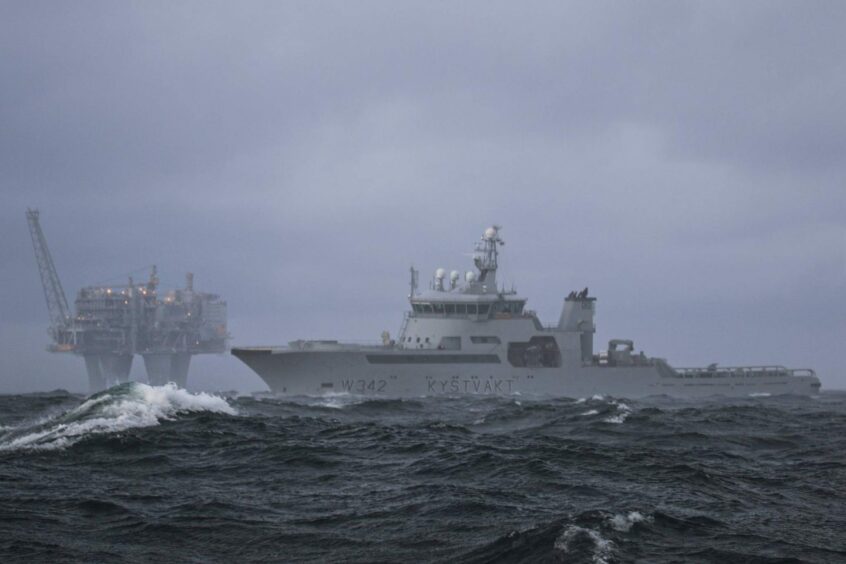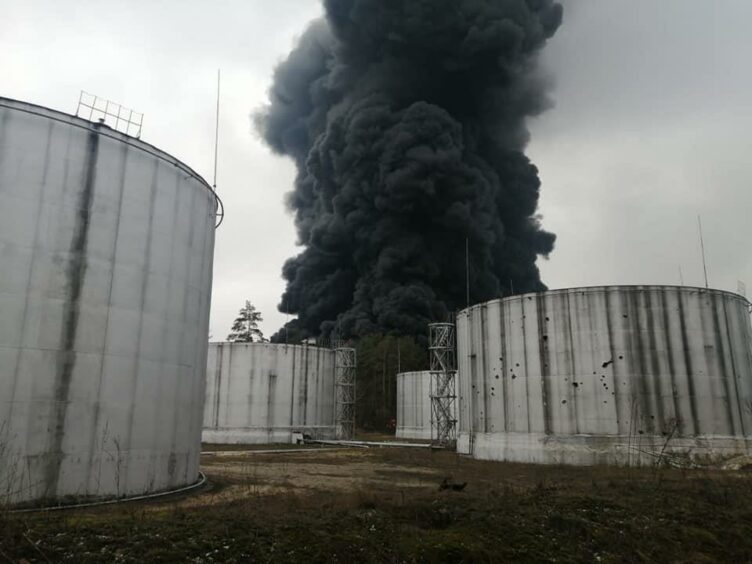
An energy entrepreneur says there are “definitely” more defence investors interested in the sector following Russia’s invasion of Ukraine, launched a year ago today.
Chief executive of Subtron Group, Steven Gray told the Subsea Expo conference in Aberdeen that the “penny has dropped” as to the potential vulnerability of North Sea assets.
That was made starkly obvious in September, when the Nord Stream gas pipeline in the Baltic Sea suddenly sprung leaks.
There was instantly suspicion of foul play, and it was subsequently confirmed that the major asset had been sabotaged, sparking a blame game.
Meanwhile, Russia has also been strategically targeting energy infrastructure in Ukraine in a big to knock out the country’s power supply.
Joined up thinking
Mr Gray said: “If you look at the way Russia has been fighting the war in Ukraine, one of their key tactics has been to take out energy infrastructure. Think about the way we want our energy grid to look like in ten years, time; we’re going to be entirely reliant on subsea cable bringing back power to shore.
“As a result of that, there is more interest from the defence community, as well as the investors that follow them around – defence contracts tend to be quite large and profitable.
“I’m definitely seeing a number of investors, with defence background, now starting to get more interest in energy. It is coming, and it’s across a number of areas, whether it’s subsea vehicles used for surveillance or remote monitoring systems.”
A proxy energy war
With Russia amongst the world’s oil and gas exporter elite, hydrocarbons were always going to be a key proxy battleground in the conflict, Europe’s worst since World War 2.
Days after Putin ordered his troops to enter Ukraine, Western government’s hit the Kremlin with fa reaching economic sanctions.
Meanwhile, numerous companies, including dozens of oil and gas players, quickly announced plans to pull out of Russia, incurring big financial hits as they did so.
For much of the last year, energy security has been the phrase of the moment, in terms of securing supplies to replace Russian imports, as well as protecting said supplies.

Nick Dalgarno of Piper “I think it’s probably an area that hasn’t properly been considered. We speak about energy security, but we don’t really talk about physical security of assets. That is concerning, but I do think that’s going to become a more meaningful part of the discussion.
“We’ve also seen a lot of the service companies who have built high quality technology, looking to transition, and move away from simply being an oil and gas one trick pony.”
Burness Paull’s Bob ruddiman, who chaired the discussion on ‘doing business underwater’, added: “Sometime the development of technology in oil and gas that could have a defence application has been taken so far, and then moved on as a result of the requirement to have government contracts. It’s going to be interesting to see whether that changes at all going forward.”
Recommended for you


 © Supplied by The State Emergency
© Supplied by The State Emergency